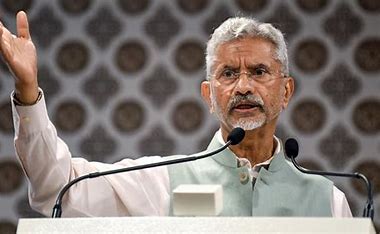
Presently, the environment, sustainability, green production, green marketing, green supply chain, green finance, and many of their variants have not only entered the lexicon of business and social discourse, but have become buzzwords worldwide. The United Nations’ Millennium Development Goals have been transformed into the Sustainable Development Goals. No discussion today is complete without referring to some or at least one of them.
Imminent issues like global warming, climate change and greenhouse gas emissions have forced governments to focus their policies and regulations on issues like environmental protection and sustainable development. Technology is being leveraged in a big way to solve these grand challenges that are believed to pose an existential threat to the universe.
Trade, commerce and industry don’t want to be seen lagging. They are positioning themselves to champion the cause and want to be seen at the forefront of solution-searching and solution-providing initiatives. Strangely, the forces responsible for causing the crisis and catalysing it to reach catastrophic proportions are being relied upon to provide a sustainable solution.
It has long been realised that growth in the Gross Domestic Product is not a good indicator of measuring peace, prosperity, happiness or even development. Comprehensive indices like Human Development Index have been developed. Competition for higher and higher GDP year on year has catastrophic consequences. This promotes consumerism, and all organs, institutions and instruments seek to produce, market and sell more and more products and services to maximise profits. They do not even think twice about converting adversities into opportunities.
Sustainability has provided them with yet another strategy for positioning and targeting. They present an offer and solution to an existing problem that their inventions have caused and, in the process, make more money. Every product has a lifecycle and must be reinvigorated to remain relevant and in demand. Environment and sustainability give them a handy instrument to revitalise their products and services.
Digital data processing, digitalisation, digital storage, digital warehousing, data mining, dashboards and data display on digital screens were all marketed for various purposes. One of them, and initially, it was the most dominant one, was their environment friendliness, for it would save trees that go into making papers.
Experience tells us that these advances triggered technological advancements leading to many more business opportunities, all adding to GDP growth. But have they all been environment-friendly and sustainable? It would require a sophisticated model to prove that digital technology saved the environment to a significant extent. On the contrary, there is a lot of evidence that they polluted the environment visibly—they are energy guzzlers and generate huge amounts of heat, causing environmental degradation.
The information technology, electronics, and communication industry has been generating more revenues by forcing consumers to buy newer models that they churn out quite frequently compared to adding new buyers. Technological obsolesce caused by this buy-use-discard-buy-new (BUDBN) approach may have led to GDP growth, but has also promoted profiteering at the expense of consumers and sustainability.
Humanity today is sitting on mountains of digital discards, which are rising high and high and growing in numbers due to their shipments from the developed to the developing and underdeveloped world. Most of these scrapped are processed to extract recyclable minerals and metals with severe health hazards, mostly by poor people who can ill afford healthcare. The inability of the electricity supply companies to ensure a steady power supply has necessitated the inverter industry. Their failure to provide surge protection has led to the Uninterrupted Power Supply industry. They all run on batteries which have to be replaced at frequent intervals.
The failure of the public utilities to plan and provide a regular and steady supply of clean and safe water is the root cause of individuals relying on groundwater extraction through bore wells. It has made people demand alternative solutions to pull and pump water up to store them in overhead water tanks. Pumps cause noise pollution and consume energy. The overhead and underground water tanks are now mostly made of plastics, causing damage to the environment.
Renewable energy sources are the current buzzwords. Solar and wind technologies are being marketed as environment-friendly. Solar farms are being subsidised. Individuals are being incentivised to install rooftop solar panels. The huge wings of the windmills get damaged and need replacing. So are solar panels. They lose their efficiency, corrode over time, and must be replaced. Where do we account for these environmental costs? Passengers and transport vehicles pollute. Diesel vehicles pollute more. States like Delhi were forced to discard their diesel buses. At the same time, the passenger car companies were manufacturing and marketing diesel variants and selling them at a premium by positioning that they saved the mileage cost to the passengers. Common sense suggests that the regulatory authorities and the government would have prevented this. The environmental cost should have weighed more heavily than the economic savings for them.
Car owners are now compelled to scrap their vehicles if they have outlived fifteen years. Yes, car pollutes, and older cars may pollute more. But many conscientious private car owners may have taken good care of their vehicles and may still not be causing pollution beyond the prescribed limit. Whose interest does the decision to discard such cars serve?
Consumers are being encouraged and incentivised to go for electric automobiles. Some countries have set a definite timeline by which only electric cars would be permitted on their roads. Sounds environmentally friendly. They are positioned as a necessity to address climate change. But a bulk of electricity production in the world still uses fossil fuels, which pollute the environment.
Besides, all available information points out that the batteries used in electric cars would last an average of five years. This is based on the fact that batteries can be charged maximum only for certain numbers of cycles. They shall have to be replaced after their useful life has extended. Going by the current cost, the battery replacement would cost quite heavily. Economic costs to the consumers apart, is anybody considering the damage that the old discarded batteries would cost the environment?















